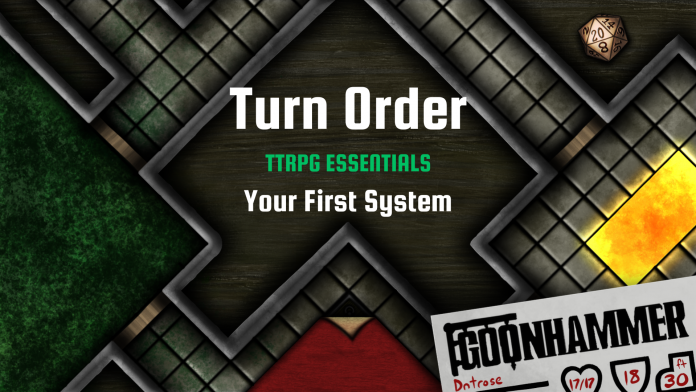Hey, you came back! That’s great! Maybe you didn’t, and the SEO gods are just really workin’ for this little article today, or you just like clicking links. Either way, welcome back to the third entry in a series of articles we’re calling “TTRPG Essentials,” each of which focuses on welcoming you into the robust hobby of tabletop roleplaying games. If you want to read the first two articles before this one, you can find them here. The first article is a general overview and simple glossary, and the second pertains to building up your first table of players.
Today’s article is entirely focused upon the wonderful task of selecting your first TTRPG system, and the system that will effectively be your entry point into the hobby. First, though, let’s toss out any preconceived notions you might have of this first system also being your last. This hobby is absolutely massive, and it’s very likely that regardless of what system you might ultimately select to be your first, it’s entirely likely that you’ll run up against rules, design elements, or themes whose friction you appreciate less than others.
Counter to what you might expect, this is actually great. Meaningfully engaging with tabletop roleplaying games is like engaging with any other art form, it’s going to teach you about yourself just as much as it teaches you about the art itself. You might learn about your expectations, your likes, your dislikes, and/or everything else in the process.

As discussed in the first article in this series, TTRPGs run the gamut of gameplay styles, themes, and general accessibility. For our purposes today, we’ll primarily be focusing on systems that prioritize the last of those three elements, though we might find time to squeeze in a weird one at the end (for the sickos, obviously). Like the articles that preceded it, none of this is intended to be in any way exhaustive, and is intended instead to give readers a variety of options to consider.
General Accessibility
Accessibility has become a bit of a watchword within the TTRPG hobby for the last few years. As discussed before, there are countless TTRPG systems out there for you to try, but the barrier to entry is far from uniform. Some systems have a required base of knowledge or experience with the hobby, whether that be terminology, mechanics, or concepts. Many systems attempt to bridge this gap as best they can, but one could argue that not all succeed to the same degree.
The systems we’ll talk about today all have different methods of approaching accessibility. The majority of them will do so through their approach to both the onboarding and character creation process, but the one we’re going to start with utilizes a method that has gained popularity over the last few years within the TTRPG hobby.
Dungeons & Dragons
It feels odd to recommend D&D at the top of this list for great first systems, but to be perfectly frank, nothing else within the hobby has a presence even close to comparable. Hell, if your table is filled with players just as new to the hobby as yourself, you might have used the cultural shorthand of D&D just to broach the topic of the hobby in the first place.

As D&D is a Hasbro-owned property, they have the budget the fund expansive quickstart sets that can function exceedingly well at getting both DM and player alike into the world and gameplay of the system through pre-generated characters, written scenarios, packaged minis, and maps. Few other systems can boast an identically robust and luxurious entry point.
What makes D&D accessible is in part this cultural penetration and big-budget quickstart sets, but to be perfectly honest… it might also be because of an app.
D&D Beyond (Once a third-party app, now owned by Hasbro), is an application that provides players and DM’s with a bounty of resources, as long as you’re willing to pay for them, or have a friend that already is. Character creation options, items, settings, everything shy of a playable VTT platform is here for you to use.
There’s also a bounty of homebrew content, allowing and encouraging your table to go beyond official supplements when it comes to filling out your game world. If you really get stuck in, you can also make your own homebrew content and add this into the app either publicly or privately, though this process is a little less intuitive than the rest of the app.
Finally, and most importantly, the app handles the math. Once you’ve made your character, you just need to click the stat, skill, attack, or ability, and the app rolls the necessary die before giving you the result. If something gives you a bonus die, just select it on the side of the app and it’ll roll that too!
Most importantly, the app is intended to work just as well on your mobile device as it does on your PC.

Powered by The Apocalypse (PbtA)
Okay. So, this section isn’t dedicated to just one game line; instead we’re going to talk about a particular ruleset and system framework. Originally designed by Meguey & Vincent Baker for 2010’s “Apocalypse World”, the framework has gone on to inspire a vast cornucopia of systems, settings, and entire game lines. I’m not joking when I say that the sheer breadth of PbtA systems is a little imposing.
You have Apocalypse Keys (heroic monsters fighting to save a doomed world, in a manner akin to Mike Mignola’s Hellboy universe), Thirsty Sword Lesbians (hot queer disasters flirting through a fantastical adventure, ala She-Ra, Our Flag Means Death, etc), Monster of the Week (oppose or seek to understand the supernatural like a Winchester or a Mulder), and numerous others covering a gamut of themes and genres. This variety is one of the qualities that makes the PbtA ruleset so accessible, as it nearly guarantees that there will be a system for your table’s specific tastes and interests. This is far from its last accessible quality however.
Where PbtA can excel is in its reduced reliance on math, it’s prioritizing of a fiction-first mentality for gameplay, and its finely tuned character creation and progress methods.
To inspire players to prioritize descriptive storytelling over a simple stat-skill declaration of intent, PbtA systems utilizes “Moves”. These can be as simple as ACT UNDER PRESSURE, wherein your character is attempting to do something under dangerous conditions, or as nuanced as FIGURE OUT A PERSON where you attempt to utilize the details of the current moment to better understand another individual engaged with it. Regardless, each move is intended to drive the narrative conversation forward and encourage and inspire further roleplay.
Speaking of that, all moves and mechanics within PbtA systems prioritize simple rolls, as well as failing forward. No more hard stops in the narrative, no more “you fail. Okay anybody wanna try something else?”. What this translates into is situations where you might fail a roll to covertly pick a lock, but in so doing you break it, and so while the door may now be open… somebody definitely heard you do it. No matter what, the scene’s momentum is maintained every step of the way.
For character creation, instead of selecting a species, a class, skills, feats, etc… PbtA games ask you to select a playbook. This playbook will provide you with your character’s inherent abilities, optional (and suggested) stat spreads, items, and even physical qualities to further inspire your character. When your character progresses, they don’t have to look anywhere else other than their playbook, which provides a multitude of options for them to pick between.
All of that to say that, as most PbtA games say themselves within their text, these systems are a conversation.

FIST: Ultra Edition
This one is for the weirdos. You’re weird, you don’t fit in and you don’t want to. That’s great! Seriously, there’s a bounty of weird and wonderful systems for you to start out on! To close out our examples of accessible games, we’re going to talk about one of them, itself a PbtA game.
To quote the systems itch.io page
FIST: Ultra Edition is a tabletop roleplaying game about paranormal mercenaries doing the tough jobs no one else can. In the game, you belong to a legendary rogue mercenary unit called FIST. You are a soldier of fortune who doesn’t fit into modern society. You are a disposable gun for hire, caught up in the death and destruction of pointless proxy wars and oppressive establishments. You may also be someone who can turn into a ghost or control bees with your mind.
That sounds like a lot, right? Also rad as hell, but yeah, I don’t expect everyone to immediately connect with this system. However, I still think that you should give a chance, as I’ve yet to run a system that felt nearly as streamlined and mechanically accessible as FIST.
The core mechanics take up one page, character creation is designed to be completed in seconds, and yet the sheer breadth of options might encourage you to expand far beyond it. A self described book “full of toys”, FIST is designed to give you every tool, toy, and option possible to create your ideal play experience.
Want to play a tokusatsu-inspired operative that can transform into an entirely new heroic persona mid-mission? Take the HENSHIN trait and apply it to your character! Want the ability to give animated sentience to an object of your choice once a session? ANIMATE trait! Want to play a character that’s prone to monologues and want to be mechanically rewarded for it? NOIR trait! Each of these traits typically provides a character with a unique narrative ability, a boosted (or subtracted) stat, and a characterful item.
Originally designed as part of a game design jam on itch.io, FIST: Ultra Edition is the heavily refined end result. Claymore; the anomalous force behind the design of this game, has worked to encourage and develop a community that supports each other just as much as the system, and this has already lead to other great games developing out of the system. One such example is PLANET FIST (Designed by Jumpgate Games and Jess Levine); “…a Powered by the Apocalypse narrative wargame of satirical scifi skirmish storytelling…” that hacks apart FIST to craft a wonderfully tuned wargame that captures a completely different feel.
In the very first FIST game I ran, my players were an anarchist pile of sentient slime, a Punk in a Shark Costume, a disaster failson, and a skeleton. At every point, the manner in which they tackled the challenges of the session both kept me on my toes and further inspired me to push the session deeper and deeper into gonzo territory. FIST: Ultra Edition is just the sort of game that teaches that sort of collaborative storytelling.
Summary
Ideally these three examples have given you a few options to bring to your players, or perhaps taught you what you do or don’t want from a system in the first place. That’s the wonderful thing about this hobby, every experience has the opportunity to inform the next, and lead you to better and better games. Just remember to keep communicating with your table, and you’ll eventually know exactly what you’re looking for.
UP NEXT IN ESSENTIALS: DM Tools and Tricks!


